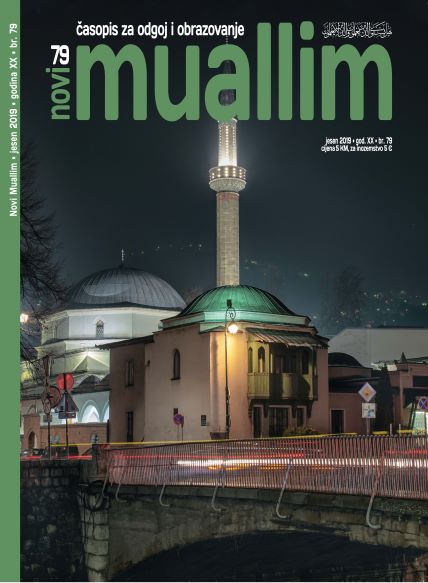ISLAMIC COSMOLOGY
DOI:
https://doi.org/10.26340/muallim.v20i79.1733Keywords:
Qur’an, Hadith, cosmos, the two arcs of the existence, vicegerency, divine attributes, macrocosm, microcosm, mikrokosmos , Islamic cosmologyAbstract
UDK 28-172.2
By William C. Chittick Translated to Bosnian by Haris Dubravac Complex and profound cosmological teachings have emerged in Islam on the bases of the Islamic sources but also on the bases of some indigenous worldviews of preIslamic societies. What makes the Islamic cosmology distinctly Islamic is the fact underlying the Qur’anic perspective that integrates and harmonises the borrowed concepts. The expression “Islamic cosmology” can generally be understood as worldview given in the Qur’an and the Hadith and is accepted explicitly or implicitly by majority of Muslims. More narrowly, it refers to the various theories of the universe that were developed by Muslim thinkers over the years. The author here presents some underlining premises of Islamic cosmological theories in attempt to illustrate the Islamic cosmos as viewed by the Muslim cosmologists. He relates about God and the universe, the two Arcs of existence. He talks about human beings within the cosmos as God’s vicegerents on earth keeping in mind that the fundamental aim of cosmology is to demonstrate how the divine attributes are manifested in macrocosm and in microcosm.
** Norriss S. Hetherington (ur.), Encyclopedia of Cosmology: Historical, Philosophical, and Scientific Foundations of Modern Cosmology, Garland Publishing, New York, 1993., str. 322–9.
Downloads
Published
How to Cite
Issue
Section
License
Naknada:
a. Časopis ne naplaćuje naknadu za obradu članaka (APC) i naknadu za podnošenje članaka.
Autori koji objavljuju u ovom časopisu pristaju na sljedeće uvijete:
- Autori zadržavaju autorska prava i pružaju časopisu pravo prvog objavljivanja, pri čemu će rad jednu godinu po objavljivanju biti podložan licenci Creative Commons imenovanje koja omogućuje drugima da dijele rad uz uvijet navođenja autorstva i izvornog objavljivanja u ovom časopisu.
- Autori mogu izraditi zasebne, ugovorne aranžmane za ne-ekskluzivnu distribuciju rada objavljenog u časopisu (npr. postavljanje u institucionalni repozitorij ili objavljivanje u knjizi), uz navođenje da je rad izvorno objavljen u ovom časopisu.


